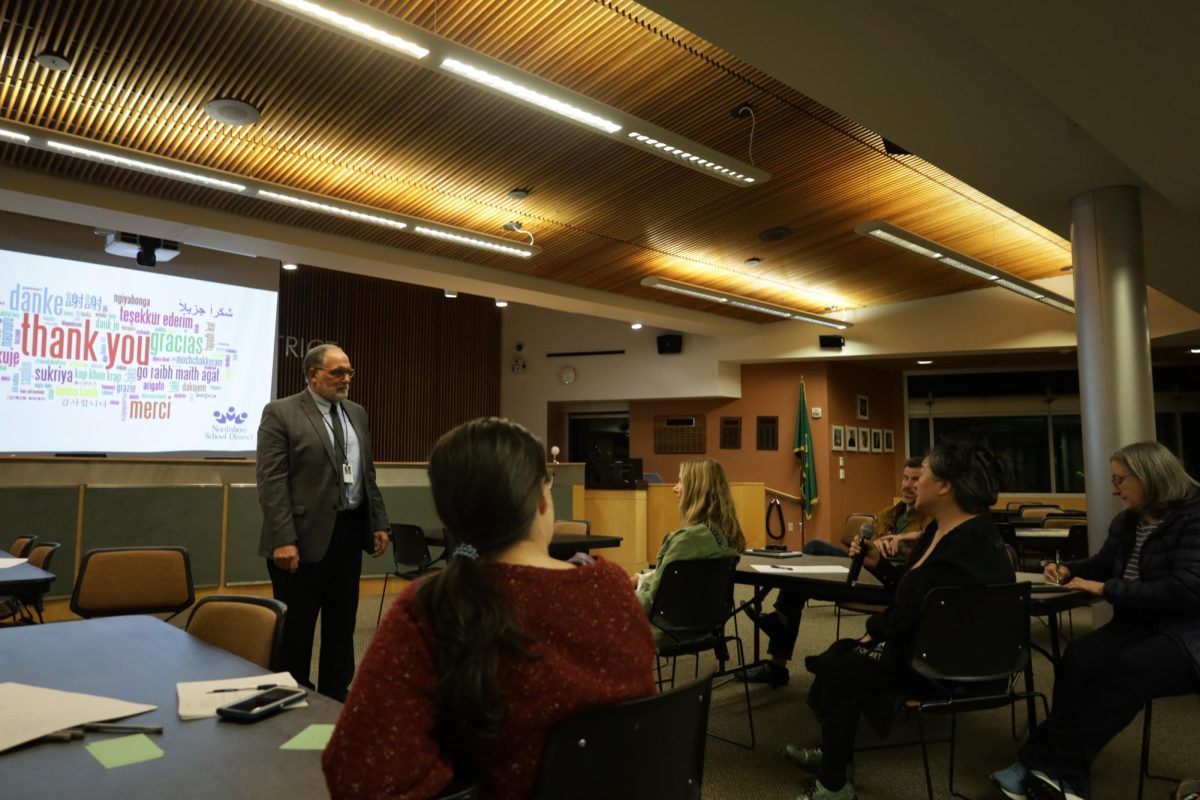The Northshore School District is expected to face a budget deficit of $26 million dollars in the upcoming 2024-2025 school year.
In efforts to mitigate the challenges facing the district, the district has asked the NSEA (Northshore Education Association) to negotiate contracts after shortly ratifying them over the summer. Furthermore, various programs across the district have faced cuts while some face potential elimination.
The NSEA has developed a list of potential solutions, all of which to cut down on costs that are contributing to the district debt. It is important to recognize that every cut will impact students, families, staff, and the entire Northshore community in some way, and that these are only potential cuts, not all will indefinitely be implemented.
High schools across the district may revert to six-period days and adjusted starting times. This affects the students as a six-period schedule does not provide students with a safety net to meet requirements for graduation.
Additionally, students enrolled in programs outside of high schools, like Running Start and satellite programs, may be significantly affected by the lack of an additional travel period, and their course options may be restricted. Elective classes and teachers will be hit by this debt as well, as students have to prioritize meeting the graduation requirements.
ASB classes are impacted by the decrease in periods and time adjustments, as they require additional time to accomplish intricate and complex tasks. The debt’s influence extends to both ASB and non ASB students, as ASB serves as an important platform for student voice, advocacy, and planning events such as homecoming, prom, assemblies and more.
“Given the incredibly large responsibilities and time commitment required of ASB representatives, there is not enough time to rely only on before and after school sessions to complete everything.” said ASB President, Tanya Bhandari.
The potential elimination of elementary sports, and reduction of middle school sports transportation can hinder young students who have a strong passion for school athletics. Increased fees in theater, summer school, and preschool tuition may strain families financially.
This $26 million dollar deficit extends to other facilities; Woodmoor pool may be closed and the cleaning of schools with a cafeteria might be limited to just every other day. Band and orchestra may be cut at elementary schools, which will provide difficulties for students to engage in the music program.
The roles of athletic directors, activity coordinators, campus supervisors, and assistant principals may be reduced at the high school level. The loss of athletic directors can dishearten students who commit to sports; a loss of activity coordinators would provide difficulties for ASB. Without the role of supervisors, student safety may be compromised and maintaining a safe space could become challenging. Staff will also have to take on more tasks to accommodate the elimination of these roles.
The budget deficit in the NSD district is a matter of great concern for the staff at North Creek High School, who are concerned for how these changes may implicate student’s social and academic lives.
“I think in general this is going to be hard on students, I personally think a lot of these are cuts to you know elective programs that kids like, there’s potential cuts to a lot of WANIC satellite programs, I mean they’re not going to cut mandatory requirements for graduation, but they will potentially cut the arts, that’s already happening across the nation, I think a lot of these could be pretty negative for kids,” said NCHS principal Eric McDowell.
Numerous factors have contributed to the escalating deficit rates in the NSD. The pandemic accelerated decreasing student enrollment rates, while staffing levels have simultaneously increased to compensate for student needs. The district has provided increases in instructional program opportunities for students and the budget for public education has not kept up with inflation and the real costs of running schools.
The biggest driver of the budget deficit is Washington state’s continued underfunding of public education, specifically special education. For instance, in the 2022-23 school year, Northshore dedicated $25.6 million dollars in local levy funds for special education students’ needs. The state gave the district an additional $9 million dollars, but this unfortunately doesn’t come close to covering the costs. If the state provided the legally required funds for special education, then the budget deficit would not be this enlarged.
Education is the foundation of a successful future, so it is crucial to advocate for proper funding and budgeting of schools. The Northshore School District is constantly growing, expanding, and changing. Budget cuts in schools not only impact students, but everyone in the community. Investing in education is investing in the lives of the upcoming generations of young, enthusiastic students, eager to learn.

















